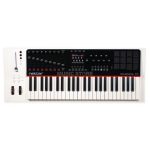Discover The Power Of Panorama Natera Prenatal Screen: Your Key To A Healthier Pregnancy!
Panorama Natera Prenatal Screen: A Revolutionary Genetic Test for Expectant Parents
Introduction
Welcome, Happy People, to this informative article about the Panorama Natera Prenatal Screen. As expectant parents, it is crucial to gather as much information as possible about your baby’s health. In this article, we will delve into the details of the Panorama Natera Prenatal Screen, a groundbreaking genetic test that provides comprehensive insights into your baby’s well-being. Let us explore the benefits and advantages of this test, as well as its limitations and frequently asked questions.
1 Picture Gallery: Discover The Power Of Panorama Natera Prenatal Screen: Your Key To A Healthier Pregnancy!
Table: Panorama Natera Prenatal Screen Information
Test Name
Panorama Natera Prenatal Screen
Test Method
Non-invasive prenatal testing (NIPT)

Image Source: clpmag.com
Testing Period
As early as 9 weeks into pregnancy
Objective
To evaluate the risk of chromosomal abnormalities
Conditions Detected
Down syndrome, trisomy 18, trisomy 13, sex chromosome aneuploidies, and microdeletions
Accuracy
Greater than 99% for trisomy 21 (Down syndrome)
What is Panorama Natera Prenatal Screen?
Panorama Natera Prenatal Screen is a non-invasive prenatal testing (NIPT) method that analyzes the baby’s DNA circulating in the mother’s blood. It provides valuable insights into the baby’s risk of having chromosomal abnormalities such as Down syndrome, trisomy 18, trisomy 13, sex chromosome aneuploidies, and microdeletions.
How does Panorama Natera Prenatal Screen work?
The test works by isolating and analyzing the cell-free fetal DNA present in the mother’s blood. Through advanced sequencing technology, the test can detect and accurately assess the quantity of chromosomes and specific genetic abnormalities.
Who should consider Panorama Natera Prenatal Screen?
Panorama Natera Prenatal Screen is recommended for all expectant parents, especially those at an increased risk of having a baby with chromosomal abnormalities. This test provides valuable information that can help parents make informed decisions about their pregnancy and healthcare options.
When can Panorama Natera Prenatal Screen be done?
The test can be performed as early as 9 weeks into pregnancy. It is essential to consult with your healthcare provider to determine the most suitable time for the test based on your specific circumstances.
Where can one get Panorama Natera Prenatal Screen?
Panorama Natera Prenatal Screen is available in various healthcare facilities and clinics that offer prenatal testing services. Your healthcare provider will guide you on where to access this test.
Why choose Panorama Natera Prenatal Screen?
There are several reasons why expectant parents opt for the Panorama Natera Prenatal Screen. Firstly, it provides highly accurate results with a detection rate of over 99% for Down syndrome. Secondly, it is a non-invasive procedure that carries no risk to the mother or the baby. Lastly, it offers comprehensive insights into a wide range of chromosomal abnormalities.
Advantages of Panorama Natera Prenatal Screen
1. Early Detection: The test can identify chromosomal abnormalities as early as 9 weeks into pregnancy.
2. Non-invasive: It is a simple blood test that poses no risk to the mother or the baby.
3. Comprehensive Analysis: Panorama Natera Prenatal Screen assesses a wide range of genetic abnormalities, providing expectant parents with thorough information.
4. High Accuracy: The test boasts a detection rate of over 99% for Down syndrome, ensuring reliable results.
5. Reduced Need for Further Testing: The detailed insights obtained from this test may minimize the need for additional invasive procedures.
Disadvantages of Panorama Natera Prenatal Screen
1. Limited Scope: While Panorama Natera Prenatal Screen detects various chromosomal abnormalities, it does not cover all genetic conditions.
2. False Positives: Although rare, there is a possibility of receiving a false positive result, which may cause unnecessary anxiety.
3. Cost: The test may not be covered by insurance, resulting in out-of-pocket expenses for some individuals.
4. Follow-up Testing: In some cases, further diagnostic testing may be required to confirm the results of the Panorama Natera Prenatal Screen.
5. Ethical Considerations: The test may raise ethical dilemmas for some individuals, as it provides information about genetic conditions that might lead to difficult decisions.
Frequently Asked Questions (FAQ)
1. Is Panorama Natera Prenatal Screen covered by insurance?
Answer: The coverage for Panorama Natera Prenatal Screen varies depending on insurance providers. It is advisable to consult with your insurance company to determine whether the test is covered or if there are any associated costs.
2. Can Panorama Natera Prenatal Screen detect all genetic conditions?
Answer: No, Panorama Natera Prenatal Screen focuses on detecting chromosomal abnormalities such as Down syndrome, trisomy 18, trisomy 13, sex chromosome aneuploidies, and microdeletions. It does not cover all genetic conditions.
3. How long does it take to receive the results?
Answer: The turnaround time for Panorama Natera Prenatal Screen results is typically around 7-10 days, although this may vary depending on the testing facility and other factors.
4. Can Panorama Natera Prenatal Screen determine the baby’s gender?
Answer: Yes, Panorama Natera Prenatal Screen can determine the baby’s gender with high accuracy. However, it is important to note that the primary purpose of the test is to assess chromosomal abnormalities.
5. Are there any risks associated with Panorama Natera Prenatal Screen?
Answer: Panorama Natera Prenatal Screen is a non-invasive procedure and does not pose any risks to the mother or the baby. It involves drawing a blood sample, which is a standard practice in healthcare.
Conclusion
In conclusion, the Panorama Natera Prenatal Screen is a valuable tool for expectant parents seeking comprehensive insights into their baby’s health. With its high accuracy, early detection, and non-invasive nature, this test provides vital information that can guide important decisions during pregnancy. However, it is essential to consider the advantages and disadvantages, as well as consult with healthcare providers, to make informed choices. We encourage you to explore the options available and prioritize the well-being of you and your baby.
Final Remarks
The information provided in this article is intended for educational purposes only. It is not a substitute for professional medical advice. We recommend consulting with healthcare providers and genetic counselors to receive personalized guidance based on your specific circumstances. Remember, each pregnancy is unique, and decisions should be made in collaboration with qualified professionals. Stay informed, stay empowered, and prioritize the health of yourself and your baby.
This post topic: Panorama



